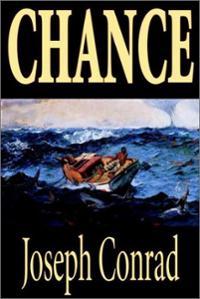
Preview Chance
It is a mighty force that of mere chance, absolutely irresistible yet manifesting itself often in delicate forms such for instance as the charm, true or illusory, of a human being' In Flora de Barral, the slender, dreamy, morbidly charming daughter of a parvenu financier, Conrad creates his most complex heroine and one of his most unrelenting, but not unhopeful, novels of emotional isolation. Neglected by her bankrupt father and rejected by her governess, drifting into abstraction and despair, Flora takes refuge at sea on Captain Anthony's ship, where tragedy and her transformation begin. When published in 1913, Chance was an immediate success. Arnold Bennett wrote that 'this is a discouraging book for a writer because he damn well knows he can't write as well as this'; while an anonymous reviewer in Punch declared that 'the whole thing is much nearer wizardry than workmanship'.
